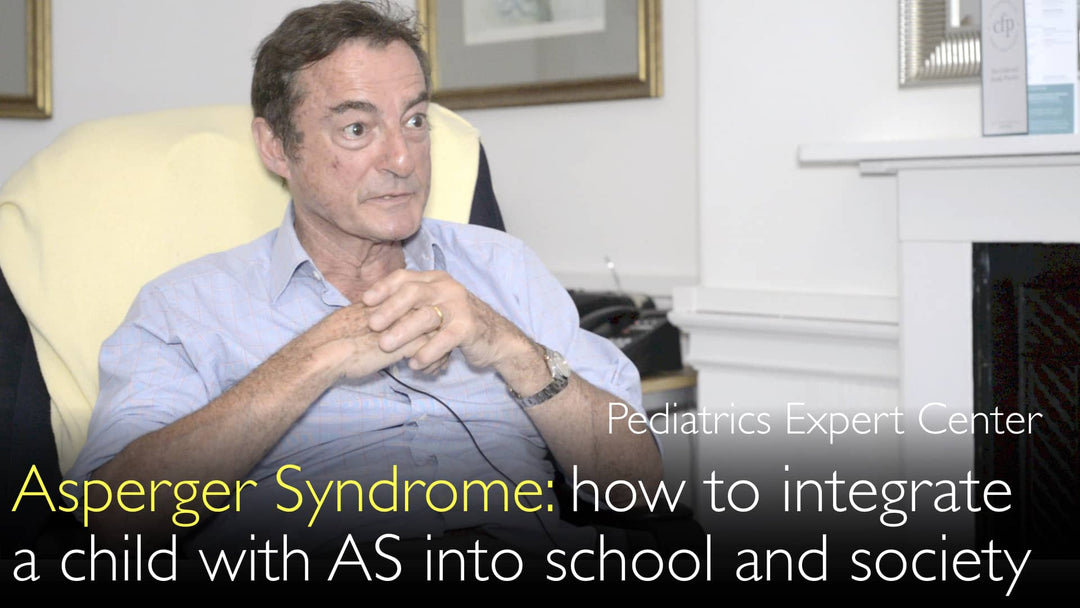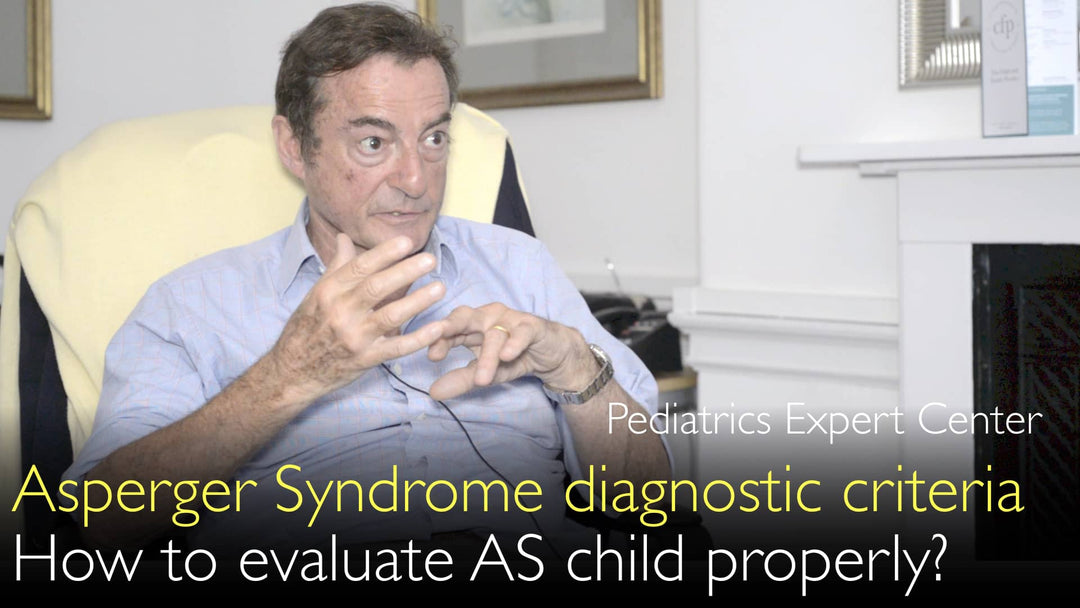Leading expert in pediatric neurodevelopmental disorders, Dr. Ricky Richardson, MD, explains how to correctly evaluate a child with learning disabilities, ADHD, or autism. He details the multidisciplinary assessment process, which includes speech, motor skills, and psychometric testing. Dr. Ricky Richardson, MD, emphasizes the critical role of integrating medical findings with tailored educational planning. He highlights the importance of family and school environment in a child's development and success.
Comprehensive Evaluation and School Placement for Children with Learning Disabilities and ADHD
Jump To Section
- Multidisciplinary Assessment Approach
- Key Components of Diagnostic Evaluation
- Role of Family and Psycho-Emotional Assessment
- Translating Assessment into Educational Guidelines
- Importance of School Environment and Class Size
- Integrating Medical and Educational Planning
- Full Transcript
Multidisciplinary Assessment Approach
Dr. Ricky Richardson, MD, underscores that a correct diagnosis for learning disabilities, ADHD, or autism requires a specific series of specialist investigations. This process is fundamentally multidisciplinary, bringing together experts from various fields to form a complete picture of the child's needs. The goal is to move beyond a simple label and understand the child's unique cognitive and emotional profile.
This team-based evaluation ensures that no aspect of the child's development is overlooked. As Dr. Ricky Richardson, MD, explains, the team includes medical professionals, therapists, and crucially, senior educationalists. This collaborative effort is the foundation for creating a successful and holistic management plan.
Key Components of Diagnostic Evaluation
The diagnostic evaluation for a neurodevelopmental disorder involves several critical components. Dr. Ricky Richardson, MD, lists assessments of speech and language function and an expert evaluation of motor skills to identify potential dyspraxia.
A comprehensive psychometric profile and cognitive skills analysis are also essential. This includes standardized IQ testing to understand a child's intellectual strengths and weaknesses. These components work together to provide a data-driven foundation for diagnosis and subsequent intervention strategies.
Role of Family and Psycho-Emotional Assessment
Dr. Richardson places significant emphasis on evaluating the child within the context of their family system. A psycho-emotional assessment is a key part of the process, focusing on the child's relationships with parents, carers, and siblings.
This assessment provides invaluable context for the child's behavior and emotional well-being. Understanding these dynamics helps clinicians identify sources of support and potential stress. Dr. Anton Titov, MD, and Dr. Ricky Richardson, MD, agree that this family-centered view is crucial for effective long-term support.
Translating Assessment into Educational Guidelines
A unique aspect of Dr. Richardson's approach is the involvement of senior educationalists on the clinical team. After the multidisciplinary assessment is complete, these experts translate the complex medical and psychological findings into practical, actionable guidelines for the child's school.
These guidelines are designed to help teachers understand the child's specific needs and learning style. They provide a roadmap for creating an inclusive and supportive classroom environment where the child can thrive academically and socially.
Importance of School Environment and Class Size
Dr. Ricky Richardson, MD, highlights that the school environment is a decisive factor for children with vulnerable learning difficulties. He notes that a large class size of 40-50 students can be overwhelming and impossible for some children to cope with.
For these vulnerable students, a much smaller class size of 8 or 9 children is often necessary. This allows for the one-to-one attention they require to succeed. Consequently, a recommendation to change to a more suitable school is a common and vital outcome of the assessment process.
Integrating Medical and Educational Planning
Dr. Richardson stresses that integrating medical aspects with educational planning is absolutely critical. He observes that historically, the focus was solely on the medical condition, while the practicalities of education were forgotten.
Dr. Anton Titov, MD, concurs, noting that getting education right is crucial for every child's development. The educational methodology must be meticulously tailored based on a deep understanding of the child’s psychological profile. This seamless integration ensures that diagnosis directly leads to effective, real-world support for the child and family.
Full Transcript
Dr. Anton Titov, MD: Let’s turn attention to children with learning disabilities and behavioral problems. This is one of your major interest areas in pediatrics. What factors are most important in assessing children with learning disabilities and behavioral problems?
How to assess a child with autistic spectrum disorder? How to select the optimal therapy for ADHD?
Dr. Ricky Richardson, MD: I suppose the first thing is to get the right diagnosis. That requires a specific series of specialist investigations and assessments of speech and language. An expert has to assess their motor skills to see if they are not dyspraxic.
You have to complete a psychometric profile. There is a cognitive skills analysis. You have to see what their IQ is like, etc.
We also focus very much on the family. We do a psycho-emotional assessment. It looks specifically at the child's relationship with his or her mother and father, and with other carers.
Unusually, we have senior educationalists on our team. We finish a multidisciplinary assessment first. We then ask the educationalist to come in and translate what comes out of the assessment into practical guidelines.
These guidelines are for the school where the child is being educated. In some cases, our recommendation is to change schools. Because the child may be unable to cope with the mainstream schooling setup.
It is difficult to study when there are 40–50 children in the class. There are some children with vulnerable learning difficulties. They can only manage if there are 8 or 9 children in the classroom.
Dr. Anton Titov, MD: This makes it much more one-to-one attention. That may result in our advice to change schools.
Dr. Ricky Richardson, MD: Then our educationalists help the family to find an alternative school. It should be more suitable for the child's particular vulnerable areas.
Assessing children from the educational perspective is the most important aspect. You have to evaluate a child together with the family. You have to integrate a child into the education system better.
Dr. Anton Titov, MD: Absolutely! It is something that is often forgotten. In the past, people used to focus on the medical aspects of the condition. They forgot that the medical aspects need to be woven into the educational planning.
Because, after all, every child goes through an education.
Dr. Anton Titov, MD: Getting the education correctly is crucial.
Dr. Ricky Richardson, MD: The educational methodology must be tailored for the need of a particular child. It should be based on a deep understanding of that child’s psychological profile. It is absolutely critical.






